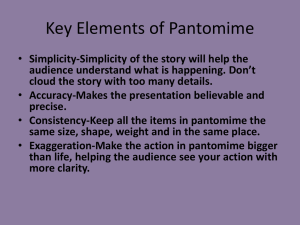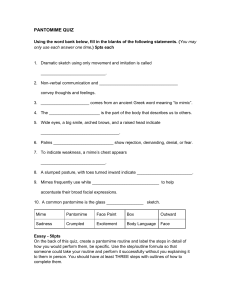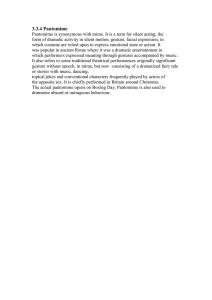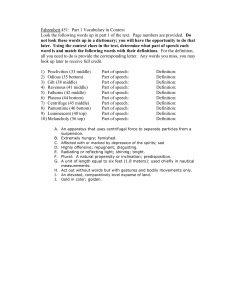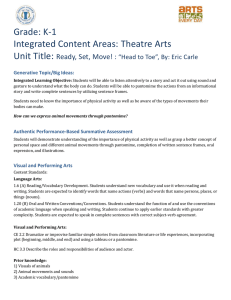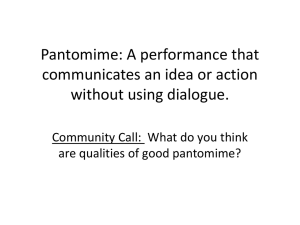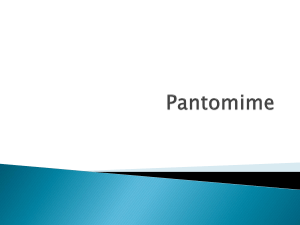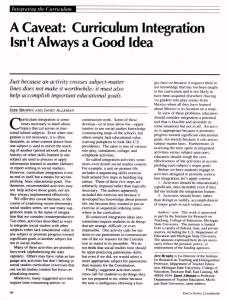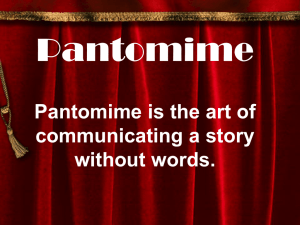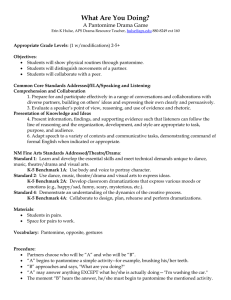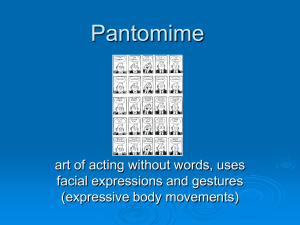Pantomime - Valley View High School
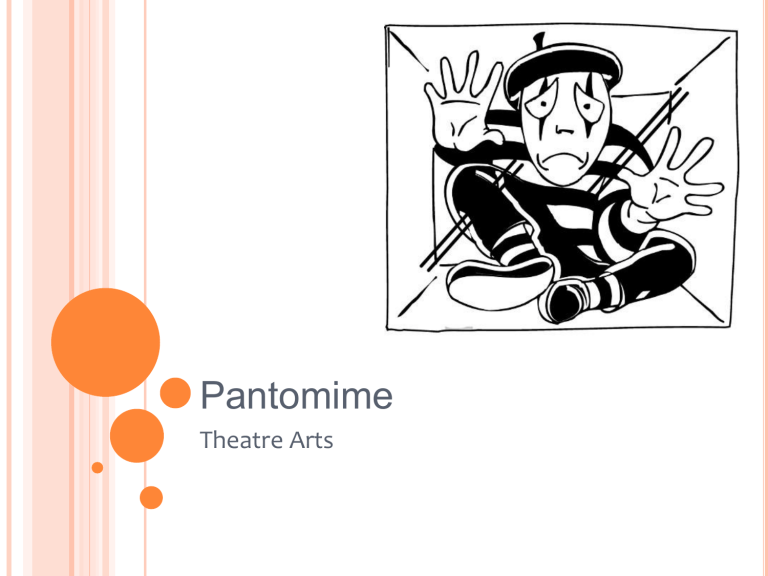
Pantomime
Theatre Arts
What is Pantomime?
Acting without talking
Comes from the Greek word “pantominios,” which means “all” “imitator” (imitate all)
Why Study Pantomime?
It is the first phase of acting
Body
Voice
Mind
The language of action is universal
ACTIONS SPEAK LOUDER THAN WORDS!
History of Pantomime
Oldest means of dramatic expression
Successful hunts
Victorious battles
First actors used to express their hopes for the future, along with:
Dance
Chants
Ancient Rome “half-time shows”
Elizabethan period “dumb shows”
History of Pantomime
Silent movies
Charlie Chaplin (early 1900’s)
Marcel Marceau (1950’s)
“the language of the heart”
Principles of Pantomime
Chest is the key
Positive emotions = high, expanded, free, broad, animated gestures
Negative emotions = tense, contracted, restricted gestures
Use upstage arm
Avoid covering your face while expressing emotion
Direct your story to your audience
All movement should be clearly motivated
Use posture/movements expected of your character
Concentrate!
Practice!
Principles of Pantomime
Creating an object in pantomime
Visualize the object. See it in your mind.
Approach the object. Move toward it.
Take the object. Make contact with it.
Tell the audience its location, size, shape, weight.
Release the object. Let go.
DO s and DON’T s
DO
DO exaggerate facial expression
DO show the shape, size, weight of objects
DO focus fully on the task
DO show the audience who you are, where you are and what is happening
DO plan a beginning, middle and end
DO include conflict or a problem
DON’T
DON’T mouth words
DON’T make any noise
DON’T use props
DON’T include body contact
DON’T include violence, weapons, etc.
Gesture Practice
Relief (“Phew!”)
Impatience (“You’re late!”)
Calling someone over (“Come here!”)
“No, thank you.”
Excitement (“I can’t wait!”)
Begging (“Pretty please?!?”)
Approval (“That’s great!”)
Object Practice
Talk on the phone
Open a can of soda
Type on the computer
Pick up a pencil
Pick up a bowling ball
Individual Pantomimes
Keep it Simple! Examples:
Walk along the street and get bubble gum stuck to the bottom of your shoe.
Try to open your locker. It is jammed.
Wash your face and get soap in your eyes. Look for a towel.
Put on a pair of shoes that are too tight.
You have been robbed and your hands are tied behind your back. Try to call the police on the telephone.
You can’t find the right key to open the lock on the door.
Drink a large glass of water and then discover you have swallowed a bug.
Eat a piece of candy and then realize you ate a piece of cat food by mistake.
